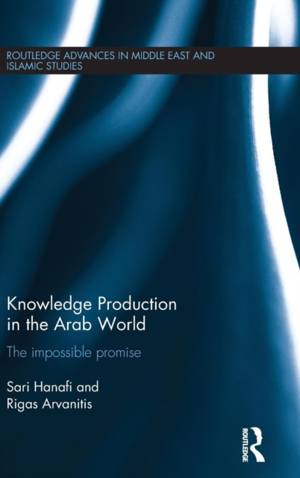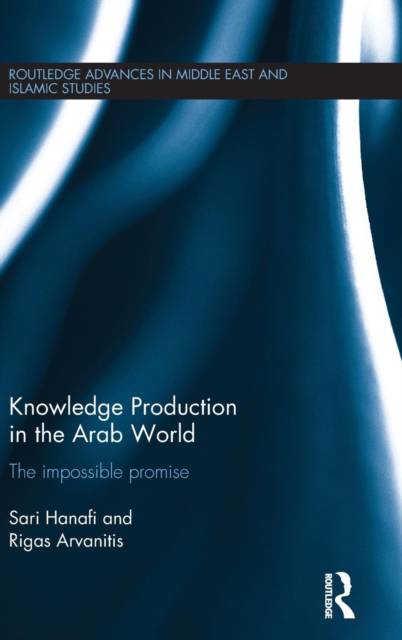
- Retrait gratuit dans votre magasin Club
- 7.000.000 titres dans notre catalogue
- Payer en toute sécurité
- Toujours un magasin près de chez vous
- Retrait gratuit dans votre magasin Club
- 7.000.000 titres dans notre catalogue
- Payer en toute sécurité
- Toujours un magasin près de chez vous
Description
Over recent decades we have witnessed the globalization of research. However, this has yet to translate into a worldwide scientific network, across which competencies and resources can flow freely. Arab countries have strived to join this globalized world and become a 'knowledge economy, ' yet little time has been invested in the region's fragmented scientific institutions; institutions that should provide opportunities for individuals to step out on the global stage.
Knowledge Production in the Arab World investigates research practices in the Arab world, using multiple case studies from the region with particular focus on Lebanon and Jordan. It depicts the Janus-like face of Arab research, poised between the negative and the positive and faced with two potentially opposing strands; local relevance alongside its internationalization. The book critically assesses the role and dynamics of research and poses questions that are crucial to further our understanding of the very particular case of knowledge production in the Arab region. The book explores research's relevance and whom it serves, as well as the methodological flaws behind academic rankings and the meaning and application of key concepts such as knowledge society/economy.
Providing a detailed and comprehensive examination of knowledge production in the Arab world, this book is of interest to students, scholars and policy makers working on the issues of research practices and status of science in contemporary developing countries.
Spécifications
Parties prenantes
- Auteur(s) :
- Editeur:
Contenu
- Nombre de pages :
- 354
- Langue:
- Anglais
- Collection :
Caractéristiques
- EAN:
- 9781138948815
- Date de parution :
- 21-12-15
- Format:
- Livre relié
- Format numérique:
- Genaaid
- Dimensions :
- 160 mm x 241 mm
- Poids :
- 657 g







